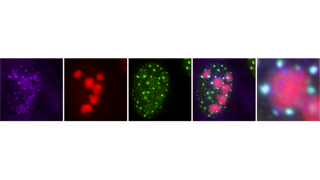Dissertation: Deep learning solutions and multimodal data analysis can be used to improve disease diagnosis and patient outcome prediction

Modern healthcare generates vast and complex datasets from a variety of sources, including medical images, clinical records, genomic sequences, and pathological slides. While each data type offers a unique perspective, their joint analysis to support healthcare has remained a major challenge.
In his doctoral dissertation, Xinyu Hao developed ai-based deep learning solutions that combine diverse medical data to enhance disease diagnosis and treatment outcome prediction.
The research focused complex diseases such as cancer, where a single dataset is not sufficient to provide a complete picture of the disease and ensure the best treatment outcome.
“Diseases like cancer are complex and heterogeneous. No single data type can fully capture the biological and clinical variability,” Hao explains. “Multimodal data analysis allows us to combine different aspects of patient information to build a more accurate and robust understanding of disease status and progression.”
His studies include predicting high-risk pregnancy outcomes using longitudinal clinical data, improving breast cancer treatment response prediction with weakly and semi-supervised learning, modeling dynamic tumor evolution through longitudinal MRI, and enhancing prostate cancer grading by aggregating spatial features from whole slide pathology images.
Proposed methods have been evaluated on real-world clinical datasets and publicly available benchmarks, achieving state-of-the-art performance especially in various cancer-related tasks.
The study addressed the challenges associated with incomplete and heterogeneous data
The dissertation tackles some of the most pressing technical challenges associated in AI-assisted medical research, such as data heterogeneity and the limited number of annotations, or records explaining the data.
"In many cases, the available data is incomplete, and for example, individual laboratory results may be missing from patient records, making it difficult to get an overall picture. One big challenge is the difficulty of modeling spatial and temporal dependencies in clinical data, such as how a patient's health data changes over time and how different data are related to each other,” Hao explains.
However, according to Hao intelligent multimodal systems can overcome current research bottlenecks and contribute to more precise and personalized clinical decision-making.
“In practical terms, these advancements could help clinicians better assess patient risk, choose appropriate therapies, and ultimately improve patient outcomes,” Hao says.
Looking to the future, Hao envisions integrating his models into decision support tools in hospitals, where real-time analysis of multimodal data could guide diagnostic and therapeutic decisions.
Xinyu Hao defends their doctoral dissertation “Multimodal Medical Data Analysis for Improved Disease Diagnosis and Treatment Outcome Prediction” on 11 June 2025. Opponent is Associate Professor Antti Airola (University of Turku) and custos is Associate Professor Ilkka Pölönen (University of Jyväskylä).
The language of the event is English.
The dissertation event can be attended in S212 (The Seminarium assembly hall) or online.




